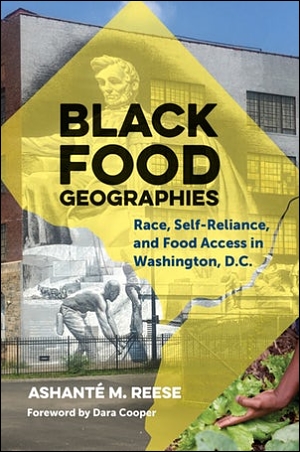Black Residents Navigate an Unequal Food Landscape in Washington, D.C.
DOI:
https://doi.org/10.5304/jafscd.2020.093.011
Keywords:
Food Access, Race, Food Geography, District of ColumbiaAbstract
First paragraph:
In Black Food Geographies: Race, Self-Reliance, and Food Access in Washington, D.C., Dr. Ashanté Reese guides us through the interconnected issues that affect the food landscape in many low-income Black communities, through the words and experiences of residents of Washington, DC’s, Deanwood neighborhood. In examining residents’ “geographies of self-reliance,” she uses the neighborhood as a prism to refract the intertwining and contradictory forces hidden within the inaccurate label “food desert.” As she says in her concluding chapter, “The neighborhood functions as an intermediary space where macro-level processes, such as where resources are placed, can be connected to micro-level processes, such as how residents determine what to buy and where to buy it from” (p. 131). . . .
Metrics

Downloads
Published
How to Cite
Issue
Section
Categories
License
Copyright (c) 2020 The Author

This work is licensed under a Creative Commons Attribution 4.0 International License.
The copyright to all content published in JAFSCD belongs to the author(s). It is licensed as CC BY 4.0. This license determines how you may reprint, copy, distribute, or otherwise share JAFSCD content.












